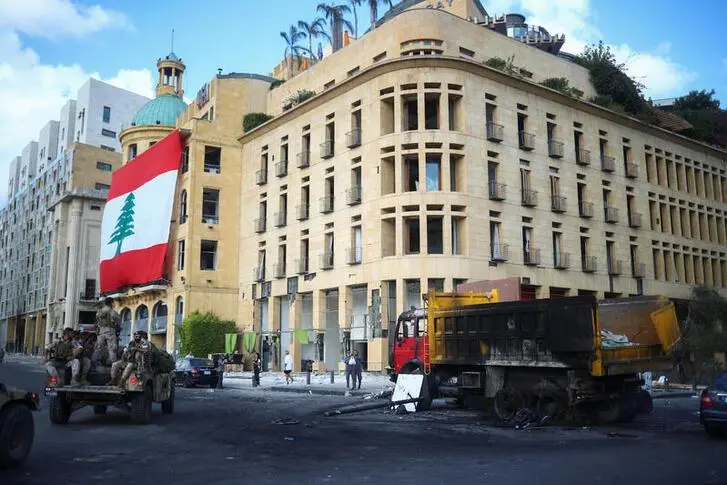PHOTO
Lebanon's Prime Minister Hassan Diab announced his government's resignation on Monday evening after a powerful Beirut port explosion triggered demonstrations and a public uproar against its leaders. The political instability as well as the lack of economic and fiscal policy reforms have exhausted the debt-ridden country's hopes for external funding, according to experts.
“The resignation of the government of Lebanon in the wake of the recent explosion highlights the credit-negative impact of sectarian fragmentation on political stability and on institutions and governance strength," Moody's Vice-President, Senior Analyst Elisa Parisi-Capone.
"While the IMF and the international donor community have reiterated their commitment to financially support Lebanon to bear the costs of the disaster, over time, in the absence of key steps toward plausible economic and fiscal policy reform, sustained official external funding support to accompany a government debt restructuring will not be forthcoming,” Parisi-Capone said.
Lebanon was already suffering from its worst financial and economic crisis since its independence in 1943. Floundering in a monetary crisis and debt pile even before the Beirut port blast and the arrival of the pandemic, Lebanon had suspended a $1.2 billion Eurobond payment and is seeking talks with creditors to restructure its entire $90 billion debt pile.
The Institute of International Finance (IIF) estimates that the blast will deepen the contraction in the economy from -15 percent already envisioned for 2020 to -24 percent. Given the large contraction in output and the massive depreciation of the parallel exchange rate, GDP could shrink from $52 billion in 2019 to $33 billion in 2020.
IIF expects the damages from the blast that killed more than 160 people and injured at least 5000 to exceed $7 billion (equivalent to 14% of 2019 GDP).
Negotiations with IMF stalled
The impasse in discussions between the Lebanese authorities and the IMF could be overcome by a new competent economic team and proactive political support to implement critical reforms.
Garbis Iradian, Chief Economist - MENA, Institute of International Finance (IIF), said: "The IMF, World Bank, and other official donors have been holding back financial support mainly because of the repeated failure of the political class (represented in the parliament and the government) to implement critical mass of reforms."
"Instead, the government and parliament have wasted much time on debating the scale of losses of the banking system and on blaming opposition political parties and foreign governments for the lack of international financial support," Iradian said.
IIF sees a narrowing of the current account deficit due to collapse in domestic demand, from 22 percent of GDP in 2019 to 12 percent of GDP in 2020 and a plunge in net capital flows. As a result, usable official reserves are expected to decline by about $7 billion to $12 billion by end-2020.
(Reporting by Seban Scaria; editing by Daniel Luiz)
#LEBANON #ECONOMY #POLITICS
Disclaimer: This article is provided for informational purposes only. The content does not provide tax, legal or investment advice or opinion regarding the suitability, value or profitability of any particular security, portfolio or investment strategy. Read our full disclaimer policy here.
© ZAWYA 2020





















